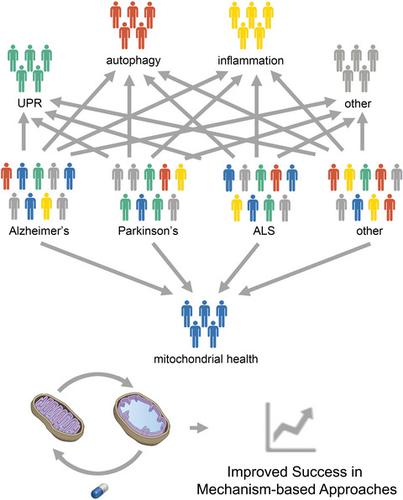Our official English website, www.x-mol.net, welcomes your
feedback! (Note: you will need to create a separate account there.)
Expanded access: opening doors to personalized medicine for rare disease patients and patients with neurodegenerative diseases
The FEBS Journal ( IF 5.5 ) Pub Date : 2020-08-17 , DOI: 10.1111/febs.15529 P Hande Özdinler 1, 2, 3, 4
The FEBS Journal ( IF 5.5 ) Pub Date : 2020-08-17 , DOI: 10.1111/febs.15529 P Hande Özdinler 1, 2, 3, 4
Affiliation

|
In neurodegenerative diseases, a select set of neuron population displays early vulnerability and undergoes progressive degeneration. The heterogeneity of the cerebral cortex and the heterogeneity of patient populations diagnosed with the same disease offer many challenges for developing effective and long‐term treatment options. Currently, patients who are considered to have a ‘rare’ disease are left with no hopes for cure, and many of the neurodegenerative diseases progress fast without any effective solutions. However, as our understanding of disease mechanisms evolve, we begin to realize that the boundaries between diseases are not as sharp as once believed. There are many patients who develop disease due to common underlying causes and mechanisms. As we move forward with drug discovery effort, it becomes obvious that we will have to shift our focus from finding a cure for a disease, to finding solutions to the disease‐causing cellular mechanisms so that patients can be treated by mechanism‐based strategies. This paradigm shift will lay the foundation for personalized medicine approaches for neurodegenerative disease patients and patients diagnosed with a rare disease.
中文翻译:

扩大获取渠道:为罕见病患者和神经退行性疾病患者打开个性化医疗之门
在神经退行性疾病中,一组选定的神经元群体显示出早期的脆弱性并经历进行性变性。大脑皮层的异质性和诊断为同一疾病的患者人群的异质性为开发有效的长期治疗方案提出了许多挑战。当前,被认为患有“罕见”疾病的患者没有治愈的希望,许多神经退行性疾病进展迅速,而没有任何有效的解决方案。但是,随着我们对疾病机制的了解不断发展,我们开始意识到疾病之间的界限并不像以前所认为的那样尖锐。由于常见的潜在原因和机制,许多患者会患上疾病。在我们进行药物发现工作的过程中,很明显,我们将不得不把重点从寻找一种疾病的治疗方法转移到寻找导致疾病的细胞机制的解决方案,以便可以通过基于机制的策略来治疗患者。这种范式的转变将为神经退行性疾病患者和诊断为罕见疾病的患者提供个性化医疗方法的基础。
更新日期:2020-08-17
中文翻译:

扩大获取渠道:为罕见病患者和神经退行性疾病患者打开个性化医疗之门
在神经退行性疾病中,一组选定的神经元群体显示出早期的脆弱性并经历进行性变性。大脑皮层的异质性和诊断为同一疾病的患者人群的异质性为开发有效的长期治疗方案提出了许多挑战。当前,被认为患有“罕见”疾病的患者没有治愈的希望,许多神经退行性疾病进展迅速,而没有任何有效的解决方案。但是,随着我们对疾病机制的了解不断发展,我们开始意识到疾病之间的界限并不像以前所认为的那样尖锐。由于常见的潜在原因和机制,许多患者会患上疾病。在我们进行药物发现工作的过程中,很明显,我们将不得不把重点从寻找一种疾病的治疗方法转移到寻找导致疾病的细胞机制的解决方案,以便可以通过基于机制的策略来治疗患者。这种范式的转变将为神经退行性疾病患者和诊断为罕见疾病的患者提供个性化医疗方法的基础。











































 京公网安备 11010802027423号
京公网安备 11010802027423号